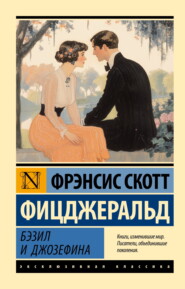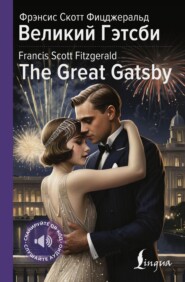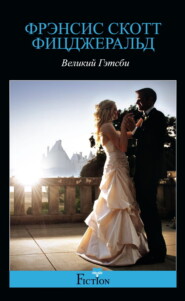По всем вопросам обращайтесь на: info@litportal.ru
(©) 2003-2024.
✖
The Beautiful and Damned
Год написания книги
2019
Настройки чтения
Размер шрифта
Высота строк
Поля
“Where to?”
“Nowhere in particular.”
“Well, then what’s the use?” demanded Anthony.
They stopped and stared at each other, and Anthony wondered if the cold made his own face as repellent as Dick Caramel’s, whose nose was crimson, whose bulging brow was blue, whose yellow unmatched eyes were red and watery at the rims. After a moment they began walking again.
“Done some good work on my novel.” Dick was looking and talking emphatically at the sidewalk. “But I have to get out once in a while.” He glanced at Anthony apologetically, as though craving encouragement.
“I have to talk. I guess very few people ever really think, I mean sit down and ponder and have ideas in sequence. I do my thinking in writing or conversation. You’ve got to have a start, sort of—something to defend or contradict—don’t you think?”
Anthony grunted and withdrew his arm gently.
“I don’t mind carrying you, Dick, but with that coat—”
“I mean,” continued Richard Caramel gravely, “that on paper your first paragraph contains the idea you’re going to damn or enlarge on. In conversation you’ve got your vis-à-vis’s last statement—but when you simply ponder, why, your ideas just succeed each other like magic-lantern pictures and each one forces out the last.”
They passed Forty-fifth Street and slowed down slightly. Both of them lit cigarettes and blew tremendous clouds of smoke and frosted breath into the air.
“Let’s walk up to the Plaza and have an egg-nog,” suggested Anthony. “Do you good. Air’ll get the rotten nicotine out of your lungs. Come on—I’ll let you talk about your book all the way.”
“I don’t want to if it bores you. I mean you needn’t do it as a favor.” The words tumbled out in haste, and though he tried to keep his face casual it screwed up uncertainly. Anthony was compelled to protest: “Bore me? I should say not!”
“Got a cousin—” began Dick, but Anthony interrupted by stretching out his arms and breathing forth a low cry of exultation.
“Good weather!” he exclaimed, “isn’t it? Makes me feel about ten. I mean it makes me feel as I should have felt when I was ten. Murderous! Oh, God! one minute it’s my world, and the next I’m the world’s fool. To-day it’s my world and everything’s easy, easy. Even Nothing is easy!”
“Got a cousin up at the Plaza. Famous girl. We can go up and meet her. She lives there in the winter—has lately anyway—with her mother and father.”
“Didn’t know you had cousins in New York.”
“Her name’s Gloria. She’s from home—Kansas City. Her mother’s a practising Bilphist, and her father’s quite dull but a perfect gentleman.”
“What are they? Literary material?”
“They try to be. All the old man does is tell me he just met the most wonderful character for a novel. Then he tells me about some idiotic friend of his and then he says: ‘There’s a character for you! Why don’t you write him up? Everybody’d be interested in him.’ Or else he tells me about Japan or Paris, or some other very obvious place, and says: ‘Why don’t you write a story about that place? That’d be a wonderful setting for a story!’”
“How about the girl?” inquired Anthony casually, “Gloria—Gloria what?”
“Gilbert. Oh, you’ve heard of her—Gloria Gilbert. Goes to dances at colleges—all that sort of thing.”
“I’ve heard her name.”
“Good-looking—in fact damned attractive.”
They reached Fiftieth Street and turned over toward the Avenue.
“I don’t care for young girls as a rule,” said Anthony, frowning.
This was not strictly true. While it seemed to him that the average debutante spent every hour of her day thinking and talking about what the great world had mapped out for her to do during the next hour, any girl who made a living directly on her prettiness interested him enormously.
“Gloria’s darn nice—not a brain in her head.”
Anthony laughed in a one-syllabled snort.
“By that you mean that she hasn’t a line of literary patter.”
“No, I don’t.”
“Dick, you know what passes as brains in a girl for you. Earnest young women who sit with you in a corner and talk earnestly about life. The kind who when they were sixteen argued with grave faces as to whether kissing was right or wrong—and whether it was immoral for freshmen to drink beer.”
Richard Caramel was offended. His scowl crinkled like crushed paper.
“No—” he began, but Anthony interrupted ruthlessly.
“Oh, yes; kind who just at present sit in corners and confer on the latest Scandinavian Dante available in English translation.”
Dick turned to him, a curious falling in his whole countenance. His question was almost an appeal.
“What’s the matter with you and Maury? You talk sometimes as though I were a sort of inferior.”
Anthony was confused, but he was also cold and a little uncomfortable, so he took refuge in attack.
“I don’t think your brains matter, Dick.”
“Of course they matter!” exclaimed Dick angrily. “What do you mean? Why don’t they matter?”
“You might know too much for your pen.”
“I couldn’t possibly.”
“I can imagine,” insisted Anthony, “a man knowing too much for his talent to express. Like me. Suppose, for instance, I have more wisdom than you, and less talent. It would tend to make me inarticulate. You, on the contrary, have enough water to fill the pail and a big enough pail to hold the water.”
“I don’t follow you at all,” complained Dick in a crestfallen tone. Infinitely dismayed, he seemed to bulge in protest. He was staring intently at Anthony and caroming off a succession of passers-by, who reproached him with fierce, resentful glances.
“I simply mean that a talent like Wells’s could carry the intelligence of a Spencer. But an inferior talent can only be graceful when it’s carrying inferior ideas. And the more narrowly you can look at a thing the more entertaining you can be about it.”
Dick considered, unable to decide the exact degree of criticism intended by Anthony’s remarks. But Anthony, with that facility which seemed so frequently to flow from him, continued, his dark eyes gleaming in his thin face, his chin raised, his voice raised, his whole physical being raised:
“Say I am proud and sane and wise—an Athenian among Greeks. Well, I might fail where a lesser man would succeed. He could imitate, he could adorn, he could be enthusiastic, he could be hopefully constructive. But this hypothetical me would be too proud to imitate, too sane to be enthusiastic, too sophisticated to be Utopian, too Grecian to adorn.”
“Then you don’t think the artist works from his intelligence?”
“No. He goes on improving, if he can, what he imitates in the way of style, and choosing from his own interpretation of the things around him what constitutes material. But after all every writer writes because it’s his mode of living. Don’t tell me you like this ‘Divine Function of the Artist’ business?”
“I’m not accustomed even to refer to myself as an artist.”
“Dick,” said Anthony, changing his tone, “I want to beg your pardon.”

















